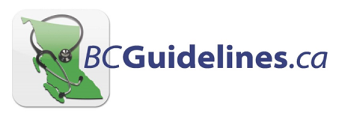Practitioner & Professional Resources
Providing your patients with optimal care and running a successful practice are much easier with access to the right resources. These resources can help you to achieve these goals.
Services and information topics
OneHealthID Service
A suite of identity products and services for health care providers in BC.
The service enables simple, secure identity management, simplified user sign on processes, streamlined registration and enrolment, and integrated security.
MSP
The policies and procedures for enrolling with MSP and receiving payment for the medical services provided to patients vary from one type of practitioner to the next. Find resources and information related to your specific type of medical practice.
BC PharmaCare for health professionals
On this page: Policy and procedures | PharmaNet and PRIME | Covered drugs | Legislation | Support
BC PharmaCare is a public program that helps B.C. residents pay for many prescription drugs, some medical devices and supplies, and pharmacy services.
Professional Regulation
In British Columbia, there are 26 regulated health professions, of which 25 are governed by 6 regulatory colleges under the Health Professions Act. The act provides a common regulatory framework for health professions in British Columbia.
Physician Compensation & Recruitment
There are two main physician compensation models in B.C: fee-for-service and the Alternative Payment program. Physicians can also receive funding through rural practice programs, which focus on recruiting and retaining physicians in rural practice, and through the Medical On-Call Availability program, which compensates physicians for being on call.
BC Provincial Academic Detailing (PAD) service
BC PAD service provides accredited continuing medical education to individuals and small groups of clinicians on selected drug therapy topics. Each session is 30-60 minutes.
Health Information Standards
Digital health standards are essential to enable the seamless integration and efficient management of healthcare information. Making clinical information available electronically to clinicians and patients offers the potential to transform how health care is delivered.
System Access
Health care partners may request access to online services. These require approval by the system owner or administrator, including (but not always limited to) the completion of agreement for system and data use.
Diagnostic Services
Outpatient diagnostic services are provided in approved facilities in both community and hospital settings. A diagnostic facility is defined as “a facility, place or office principally equipped for prescribed diagnostic services, studies or procedures, and includes any branches of a diagnostic facility.”
Health Information Exchange (HIE) Systems
The Province runs HIE services that let healthcare applications share patient information (e.g., patient demographics, lab results, medical records, and prescriptions) with central clinical systems to improve the quality and coordination of care.
Laboratory services for health professionals
The Ministry of Health’s Laboratory Services Teams lead the strategic direction, priorities, and plans for overseeing, administering, and delivering laboratory services.
Minimum Nurse to Patient Ratios (mNPR)
Implementing minimum nurse-to-patient ratios (mNPRs) is critical to ensuring stronger workplaces for nurses. This includes workplace culture, and quality practice and learning environments, which, in turn, will foster better health-care settings for patients.
PharmaNet connects BC community pharmacies, hospitals, authorized health professionals, and authorized medical device distributors.
The BC Provincial Academic Detailing (PAD) service is a form of continuing medical education in which a health professional, usually a pharmacist, meets with physicians one-on-one to discuss selected drug therapy topics.
The Lifetime Prevention Schedule (LPS) looks at clinical prevention services for British Columbians, including screening, behavioral interventions and preventive medications provided by a health-care provider, based on age and sex.
The Billing Integrity Program provides audit services to the Medical Services Plan (MSP) and the Medical Services Commission.

